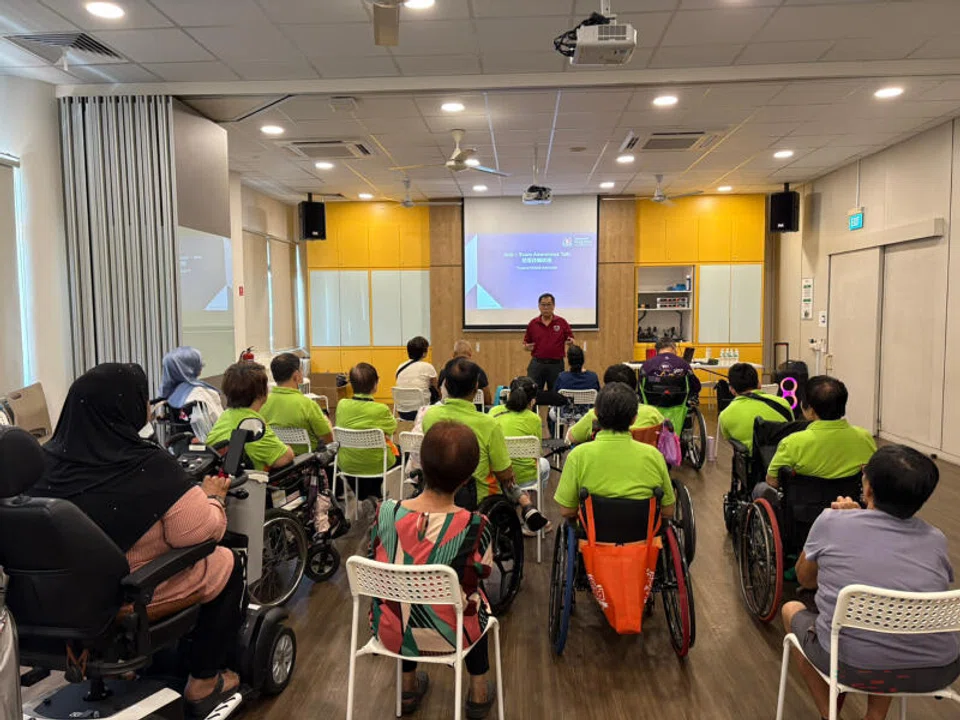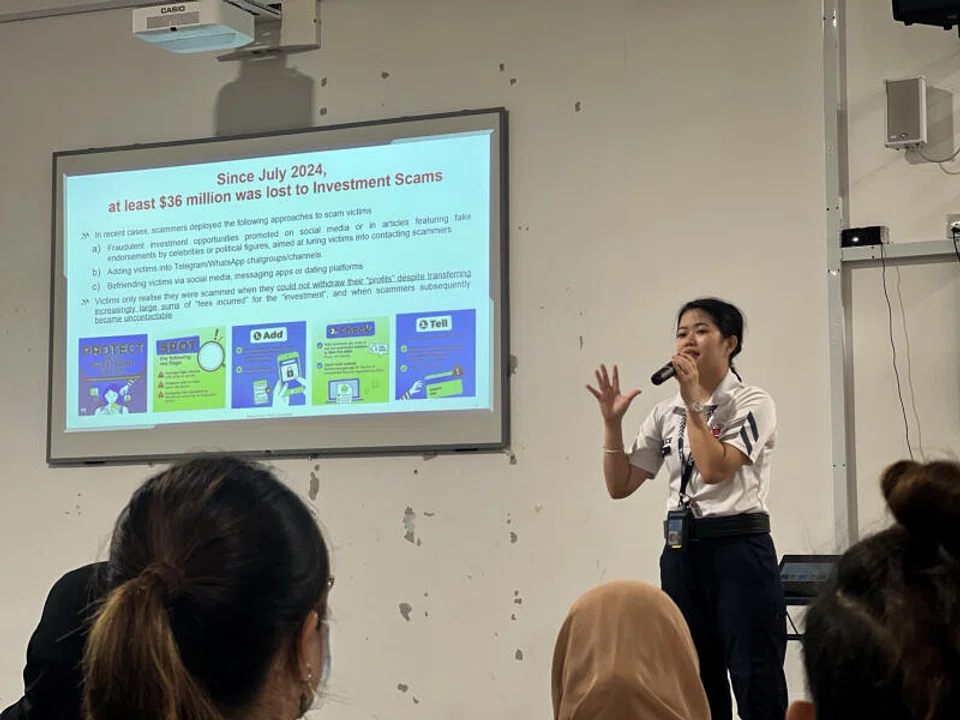Special needs man wanted to marry 'pretty woman' he met online and sent her money, then gets ghosted
Christine Tan
The Straits Times
March 1, 2025
A man with an intellectual disability fell for a woman he got to know on social media and transferred more than $100 to her from his savings account.
When the woman said she was coming to Singapore to visit him, he waited for her at the Tanah Merah Ferry Terminal for half a day. But she never turned up and cut off contact with him.
Ms Gina Tan, lead social worker at SPD, a charity which helps people with disabilities, recounted this incident to The Straits Times in February to highlight how vulnerable those with special needs are to being scammed.
Scam victims in Singapore lost a record $1.1 billion in 2024, according to annual scam figures released by police on Feb 25. This was the first time an annual loss to scams crossed the $1 billion mark.
So far in 2025, more than 3,500 cases of scams have been reported, with victims losing more than $80.7 million.
Amid the scam scourge, social service organisations said people with intellectual disabilities are especially vulnerable.
SPD, Thye Hua Kwan Moral Charities (THKMC) and Touch Community Services, which serve people with intellectual disabilities, are teaching their clients how to protect themselves against scams.

In the love scam case, Ms Tan said the scammer approached John (not his real name) on social media posing as a pretty woman. Ms Tan said: "As the relationship grew over two months, he naively thought: 'OK, I want her to be my girlfriend'."
Soon, John sent her money to "support" her, and wanted to marry her.
The woman claimed she was coming to Singapore, and John was adamant on going to the ferry terminal to meet her.
After her no-show, she stopped contacting him.
Ms Tan said John was heartbroken but did not make a police report.
Ms Chloe Lee, the superintendent of THK Home for Disabled @ Sembawang, a home for adults with intellectual disabilities, said it is common for its clients to receive scam video calls.
Some scammers even use artificial intelligence to impersonate celebrities or police officers.
Ms Lee said it is harder for people with intellectual disabilities to process complex information, assess risks or detect deception.
She said: "Most of them would have a very trusting nature because they also desire connection with people."
Ms Ang Chiew Geok, who heads the Touch Special Needs Group, said scam cases are not common among its trainees as most of them do not have a bank account, or have withdrawal restrictions in place.
But she added: "We are more concerned about cases where persons with intellectual disabilities have physical encounters with strangers, who exploit their vulnerabilities to trick them into giving money."
Ms Ang said a police report will be made if the case involves bigger sums of money, or if the perpetrator appears to be targeting the group's trainees.
Ms Lee said the home's clients are taught to inform staff members or their caregivers if they encounter a scam.
In John's case, Ms Tan said social workers could not verify if the woman was indeed a scammer, but they tried to ask him how he knew she was sincere if he had never met her.
Ms Tan said they can counsel clients but cannot overrule their choices because people with intellectual disabilities still have decision-making capacity.
She added: "It's not right for us to say he cannot have a girlfriend... It's their right to have social relationships, it's just that it needs to be managed properly."
Working with RSVP, an organisation of senior volunteers, SPD organised an anti-scam awareness talk with the police for 20 clients and caregivers in November 2024.
In October 2024, THK Home for Disabled @ Sembawang collaborated with the police for the first time to conduct a scam prevention talk for staff and some residents. It covered online fraud, phone scams and banking security.

The home also worked with university students, who designed a pamphlet for its clients, with simple English and visuals, about identifying scam video calls.
Similarly, Touch Ubi Hostel, a residential training hostel for adults with mild intellectual disabilities, has conducted two talks with the police on topics such as scams and the dangers of disclosing personal information.
Coaches also teach Touch's trainees about protecting their privacy on social media and managing their money responsibly.
The police told ST that between 2022 and 2024, they conducted an average of four scam prevention talks each year for people with intellectual disabilities, through social service agencies Minds and APSN, which serve individuals with special needs.
In 2024, the police also linked up with the Enabling Services Hubs to arrange talks for their clients. These talks were conducted by community policing officers, who delivered their presentations in simple English and used slides with images and straightforward text.
A police spokeswoman said: "Throughout the sessions, officers carefully observed participants' body language and responses to ensure the messages were being understood." She added that police officers would also share scam prevention tips with the next of kin of people with intellectual disabilities.
SPD's Ms Tan said bank officers and the public can be on the alert for people with intellectual disabilities withdrawing money at banks.
She said: "They can be sensitive to the fact that there are people with intellectual disabilities who are vulnerable to scams, and spend a bit more time to check in on them."
